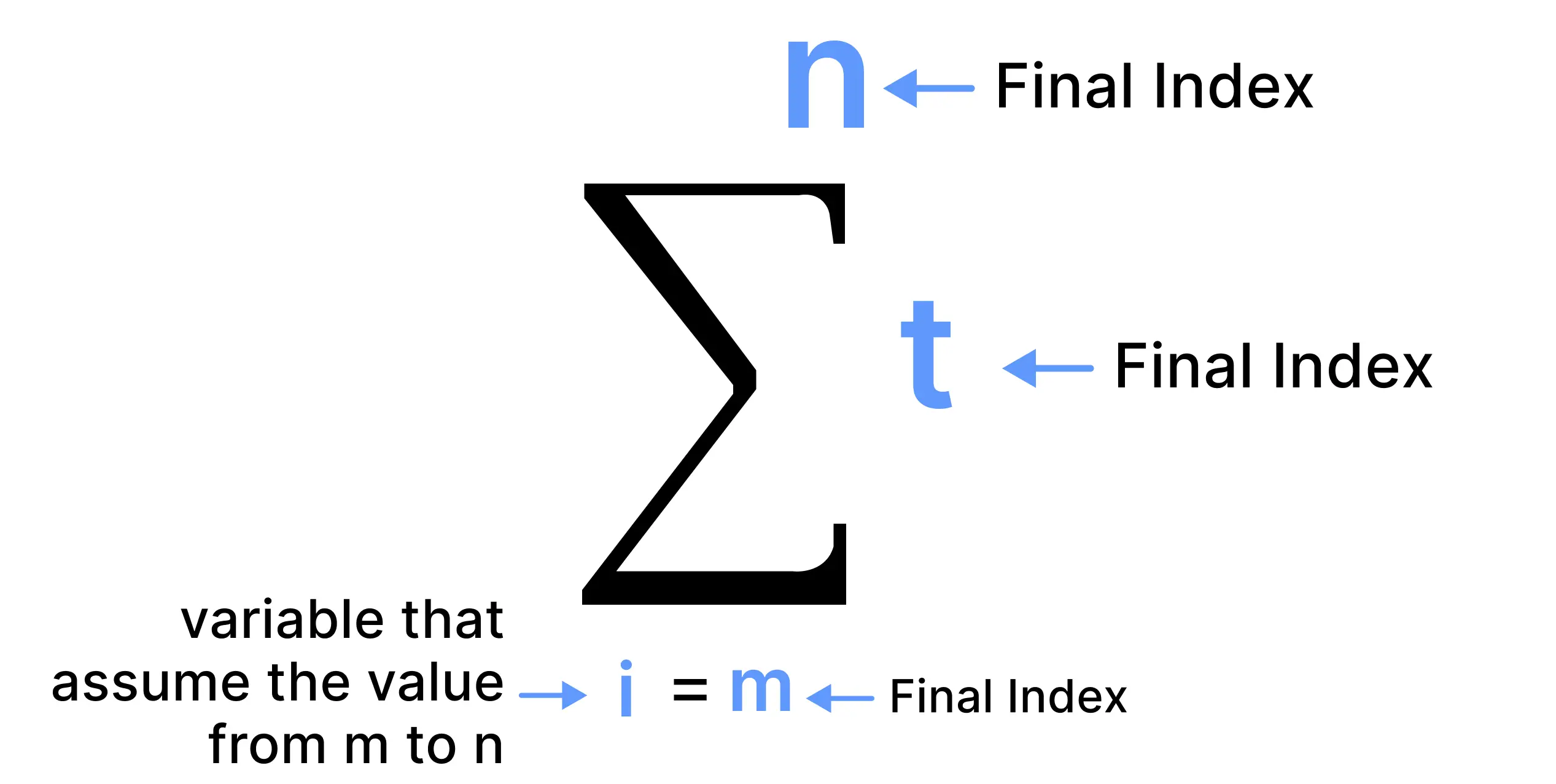Adblocker Detected

We always struggled to serve you with the best online calculations, thus, there's a humble request to either disable the AD blocker or go with premium plans to use the AD-Free version for calculators.
Disable your Adblocker and refresh your web page 😊
Table of Content
Find the sum of a number series with the summation calculator. The tool also supports the summation of algebraic expressions with lower and upper ranges entered.
With that, get step-wise solution also helps you to understand the calculations more deeply.
In Mathematics:
“Summation is the addition process of any numbers called the summands or addends that result in the sum or total”
The sequence is the series that defines the mathematical operation “+”.
Summation Symbol: Σ (A Greek Letter)

The basic sigma equation is as follows:
\(\sum_{n=1}^n x_i = x_1 + x_2 + x_3 + … + x_n\)
Where:
Suppose we have the first ten composite numbers listed as:
4, 6, 8, 9, 10, 12, 14, 15, 16, 18
Their sum is calculated as follows:
Step # 01: Write all numbers with an addition sign in between them
Sum = 4 + 6 + 8 + 9 + 10 + 12 + 14 + 15 + 16 + 18
Answer:
Sum = 112
If you have a given expression in the sigma notation below:
\(\sum_{n=3}^7 x_{i}^3\)
You may evaluate summation by expanding the sigma notation, which can be done as follows:
Step # 01: Write down the lower and upper limits
Step # 02: Now write the original function in the summation notation
\(\sum_{n=3}^7 x_{i}^3 = x_{3}^3 + x_{4}^3 + x_{5}^3 + x_{6}^3 + x_{7}^3\)
Step # 03: Enter the actual values
\(\sum_{n=3}^7 x_{i}^3 = 3^3 + 4^3 + 5^3 + 6^3 + 7^3\)
Step # 04: Solve to the most simple sigma notation
\(\sum_{n=3}^7 x_{i}^3 = 3^3 + 4^3 + 5^3 + 6^3 + 7^3\)
\(\sum_{n=3}^7 x_{i}^3 = 27 + 64 + 125 + 216 + 343\)
\(\sum_{n=3}^7 x_{i}^3 = 775\)
Summation is of two types that include:
2+3+4+5+65+6+6=91
Simple summation represents a simple arithmetic sum of numbers.
\(\sum_{i=0}^{n} [f\left(x\right)]\)
This formula is expanded to evaluate the final sum. We have to start from the Index (Lower Limit) and terminate at the Endpoint (Upper Limit).
| Sigma (Summation) for | Formula |
| Sum of natural numbers | mΣx=1 x = [m(m + 1)]/2 |
| Sum of squares of natural numbers | mΣx=1 x2 = [m(m + 1)(2m + 1)]/6 |
| Sum of cubes of natural numbers | mΣx=1 x3 = [m2(m + 1)2]/4 |
| Sum of 4th power of natural numbers | mΣx=1 x4 = [m(m + 1)(2m + 1)(3m2 + 3m – 1)]/30 |
| Sum of 1st m even numbers | mΣx=1 2x = m(m + 1) |
| Sum of 1st m odd numbers | mΣx=1 (2x + 1) = m2 |
| Sum of an arithmetic sequence | mΣx=1 a + (x – 1)d = m[2a + (m – 1)d]/2 |